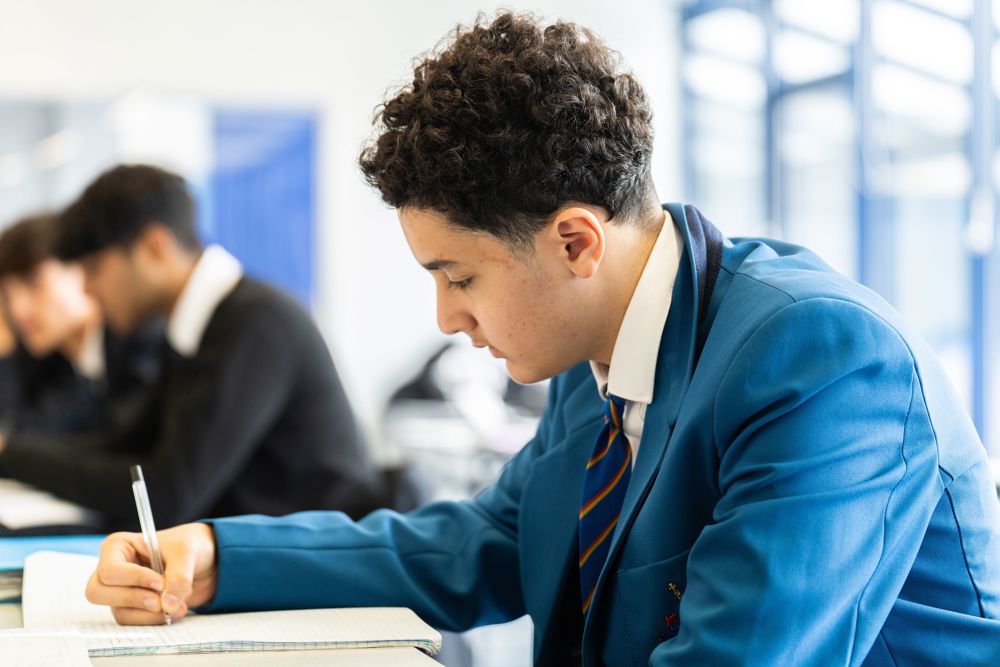
Economics
Teachers in the Economics Department are subject experts, focusing on developing learners’ intellectual curiosity and critical thinking skills. Students are provided with high levels of core knowledge and understanding in microeconomic and macroeconomic market models, and use these to explore current economic behaviours.
Economics is taught at the School from Year 10 onwards and is a popular subject at both GCSE and A Level; many of our Sixth Form students achieve excellent results and go on to study Economics at top universities such as the London School of Economics and Oxford University.
Curriculum Map

Key Stage 4
Students follow the OCR J205 GCSE specification and are taught for five periods a fortnight. Weekly homework tasks include answering questions based on the final exam, researching textbook topics and making additional notes, learning key terms and revising whole topics for classroom tests, and further research. In Year 11 students also complete an examination practice question every week. The GCSE is 100% examination. Paper 1 is on the topics of unit 1 and aspects of unit 2 and comprises 20 multiple choice questions and extended writing questions based on three case studies. Total marks: 80. Paper 2 examines the topics of unit 2 and aspects of unit 1, with the same format of questions as Paper 1. Total marks: 80. Both papers form 50% of the final marks and are 1 hour 30 minutes.
Year 10
Role of economic groups. Central economic problems and opportunity cost. Role of markets. Demand, supply and market price. Competition: degrees of competition and monopoly power. Production: importance for economy, economies of scale. The labour market and pay. Role of financial institutions.
Year 11
Economic growth. Employment. Fair distribution of income. Price stability. Fiscal policy. Monetary policy. Supply-side policies. Limitations of markets. International trade. Exchange rates. Globalisation
Useful Links

Key Stage 5
Pupils study the Edexcel A Level Economics course for nine periods a fortnight in Year 12 and 10 periods in Year 13. Weekly homework tasks include short and long-answer assessments, essays and multiple-choice tests, reading, and research. Assessment is 100% examination with three equally weighted, two-hour papers taken at the end of Year 13. Paper 1: Markets and Market Behaviour, 35% of the final mark. Paper 2: National and Global Economy, 35% of the final mark. Paper 3: Microeconomics and Macroeconomics, 30% of the final mark.
Entry requirement
Grade 6 GCSE Economics if studied (Grade 7 preferred). Grade 6 GCSE English Language and Grade 7 GCSE Mathematics if GCSE Economics not studied.
Year 12
Microeconomics: the economic problem and types of economy – market, planned and mixed; demand and supply, market equilibrium; elasticity of different types; types of efficiency – productive, allocative and dynamic efficiency; reasons for and consequences of market failure; government intervention. Macroeconomics: structure of economy; economic growth and development; sustainable development; policy objectives, measuring and improvements; inflation, unemployment, economic growth and balance of payments; trends in macroeconomic performance of UK economy; model of aggregate demand and supply, and impact on AD/AS of government policies.
Year 13
Microeconomics: types of competition and behaviour of firms in different markets; the labour market; intervention methods to tackle labour market failure; income and wealth inequality; consequences of government intervention. Macroeconomics: the economic cycle; Phillips curve representation of inflation-unemployment trade-off; international trade and absolute/comparative advantage; economic integration; different measures of exchange rates; role and regulation of the financial sector in the economy; role of the Bank of England; approaches to policy depending on external forces.
Useful Links
Enrichment
Students interested in Economics have the opportunity to join a number of clubs and societies, including the Young Enterprise Club and the Year 12 and Year 13 Economics Societies. Pupils are encouraged to enter the BASE Challenge (Accounting and Finance Competition) and the Shares for School Competition. Pupils enjoy regular educational trips, which have recently included the Your Green Future Conference, the Ethical Business Conference and a tour of the Land Rover plant.
Head of Economics
Ellen Tandy elt@strs.org.uk